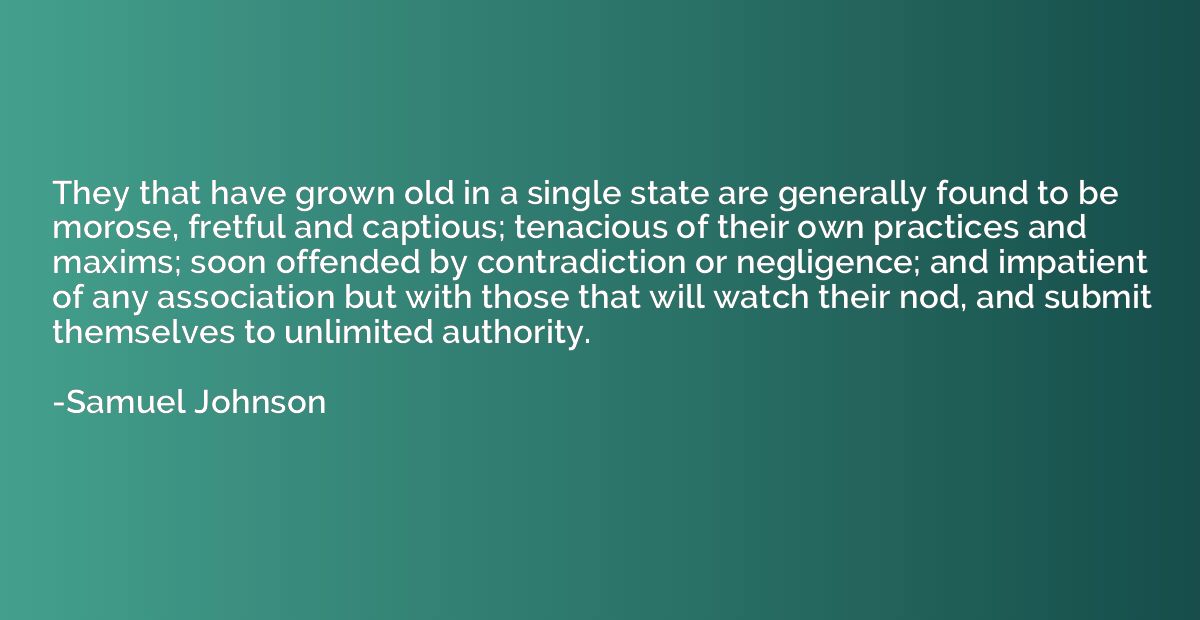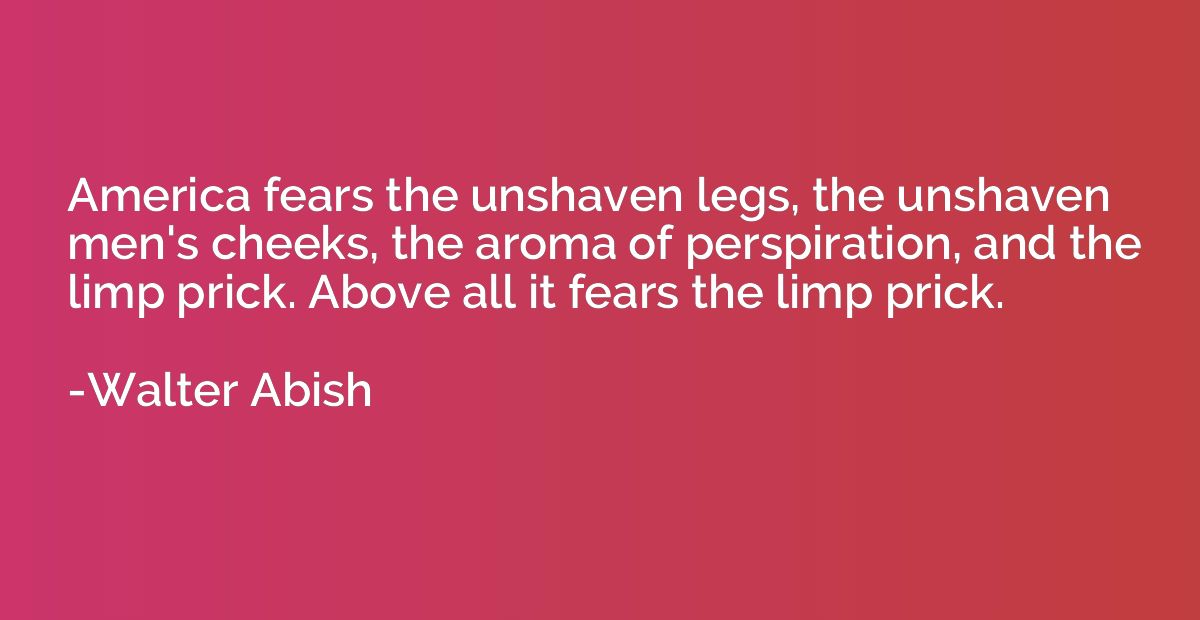Quote by Samuel Johnson
They that have grown old in a single state are generally found to be morose, fretful and captious; tenacious of their own practices and maxims; soon offended by contradiction or negligence; and impatient of any association but with those that will watch their nod, and submit themselves to unlimited authority.

Summary
This quote suggests that people who have lived their entire lives being single or alone tend to become grumpy and irritable. They become stubborn, sticking to their own habits and beliefs, getting easily annoyed by opposing opinions or carelessness. Furthermore, they dislike being associated with anyone who does not obediently follow their commands and desires. In essence, the quote highlights the negative traits that can develop in individuals who have not experienced the give and take of companionship or relationships throughout their lives.














